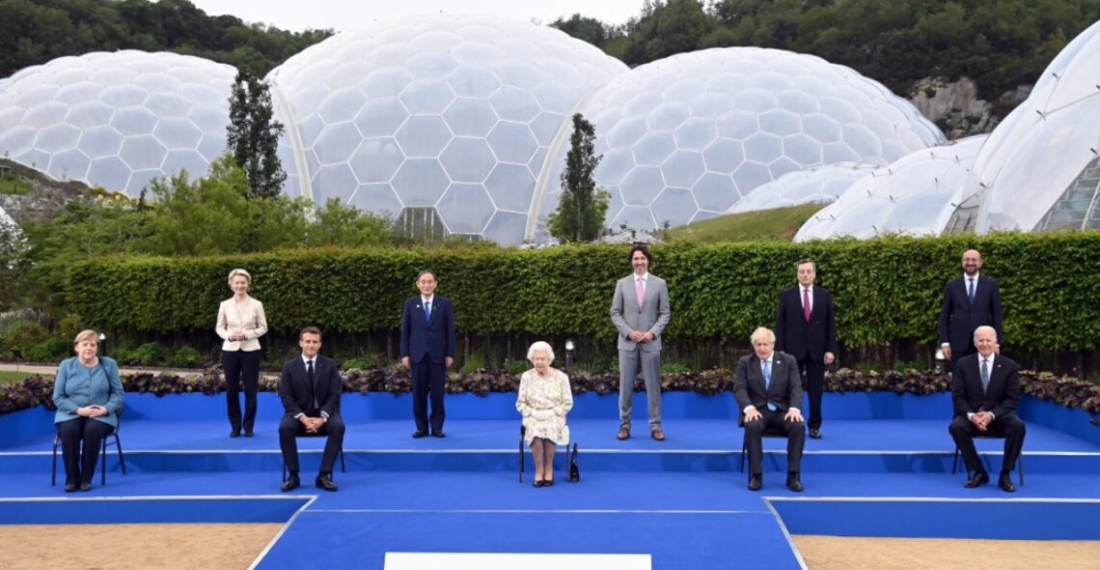G7 leaders met in Cornwall, in the South of England on Friday (11 June) to discuss the main issues of our time. They are later today expected to commit to using all their resources in an effort to ensure the devastation caused by a pandemic like Covid-19 is never repeated in a declaration that sets out a series of measures intended to achieve this. The G7 (Group of Seven) is an organisation made up of the world's seven largest so-called advanced economies: Canada, France, Germany, Japan, Italy, the UK and the US. The Summit is also attended by the president of the European Council and the president of the European Commission.
Mr Johnson, who is hosting the three-day gathering at the Cornish seaside resort of Carbis Bay, said it was vital to learn from the "mistakes" of the 2008 financial crisis and tackle the "scar" of inequality.
After Friday's talks, the leaders were joined by the Queen for a "family photo", followed by dinner at the nearby Eden Project.
As they posed for a group photo, the monarch was heard to joke: "Are you supposed to be looking as if you're enjoying yourself?"







